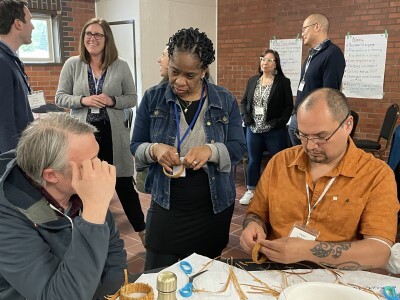Do the Math SAILS into Tennessee High Schools
Topics

Next generation learning is all about everyone in the system—from students through teachers to policymakers—taking charge of their own learning, development, and work. That doesn’t happen by forcing change through mandates and compliance. It happens by creating the environment and the equity of opportunity for everyone in the system to do their best possible work.
Through SAILS, high school students in Tennessee can become college ready in math with Chattanooga State's Do the Math course.
This month, the number of students potentially ready for college in Tennessee got a significant boost as a version of Chattanooga State College’s “Do the Math” project, one of NGLC’s “Building Blocks for College Completion” grantees, expanded its reach to the high school level and across the state. On Wednesday, May 1, the state of Tennessee launched the statewide SAILS project, which I had described in an earlier NGLC blog post. This important initiative by the Tennessee Higher Education Commission brings together all appropriate parties from both higher education (through the Tennessee Board of Regents - TBR) and K-12 (through the Tennessee Department of Education – TN DOE) in order to improve math education throughout the state's high schools and colleges. The project's timeline is ambitious, impacting 7,500 students in the first year, 15,000 students in the second year, and over 30,000 students in the third year.
SAILS embeds TBR's Learning Support Math (developmental math) in the high school bridge math course, giving students across the state the opportunity to gain a head start on their college career. This turns the senior year math class into a meaningful experience while eliminating the high-stakes testing cycle that so many students get caught up in. Also, by introducing a model of blended learning and providing individual assistance to the struggling student, SAILS promises to change the way that high school math is taught, giving at-risk students the hope of finally learning math through a new approach. The project has been piloted in 2012-13, with 4 community colleges working with 20 high schools and impacting over 600 students throughout the state. The results have been impressive: for example, at Chattanooga State, over 80% of the students in the pilot will enter college ready to take a college level math course.
What does this mean in the long run? Once implemented statewide, instead of 75% of the students testing into developmental math and needing remediation, over 75% of the students in Tennessee will enter college ready to take a college math class. The need for remediation in the state's colleges will be cut in half, which will have a significant impact on retention and graduation rates.




